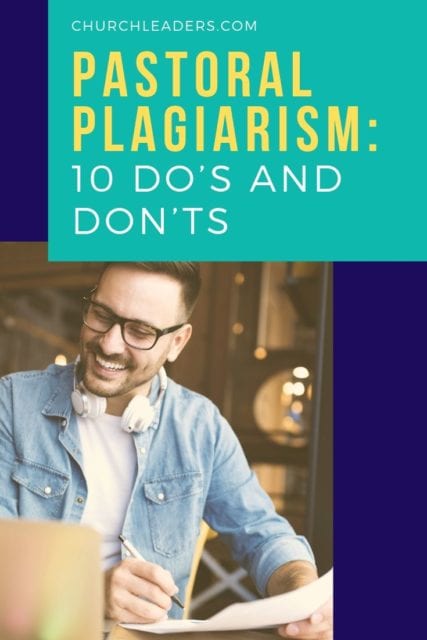Someone brought something to my attention recently. A young woman on our staff came across a talk, given by a pastor, on a church’s website. It was a clear case of pastoral plagiarism.
It was my talk.
He had delivered it, largely verbatim, from a manuscript purchased on the ChurchandCulture.org website. There was no verbal attribution ever given. Perhaps most egregious was his telling of my personal vignettes as if they were his own.
She dug into a few more, and found almost every talk for the last two-and-a-half years had been one of my talks.
I called him on the phone, and we talked about it. To his credit, he wasn’t defensive but repentant.
Then it happened again this week. Someone stumbled onto a talk on a church’s website, and it was one of my talks.
Again, almost completely verbatim.
This is serious.
A pastor of a large church in our city lost his job when one of the members of the church heard a talk on the radio by a well-known radio preacher. The pastor had given the same talk earlier that week in the church, without attribution. The member told an elder, the elder looked into the matter and discovered a pattern of plagiarism.
What are the “rules” of pastoral plagiarism for communicators?
I’m not sure we know because they aren’t as spelled out as they are in the academic world. But I think we can—or at least should—agree to the following 10 commandments:
The Do’s and Don’ts of Pastoral Plagiarism
1. Do take inspiration from another person’s talks.
2. Do allow yourself to be informed by another person’s research.


